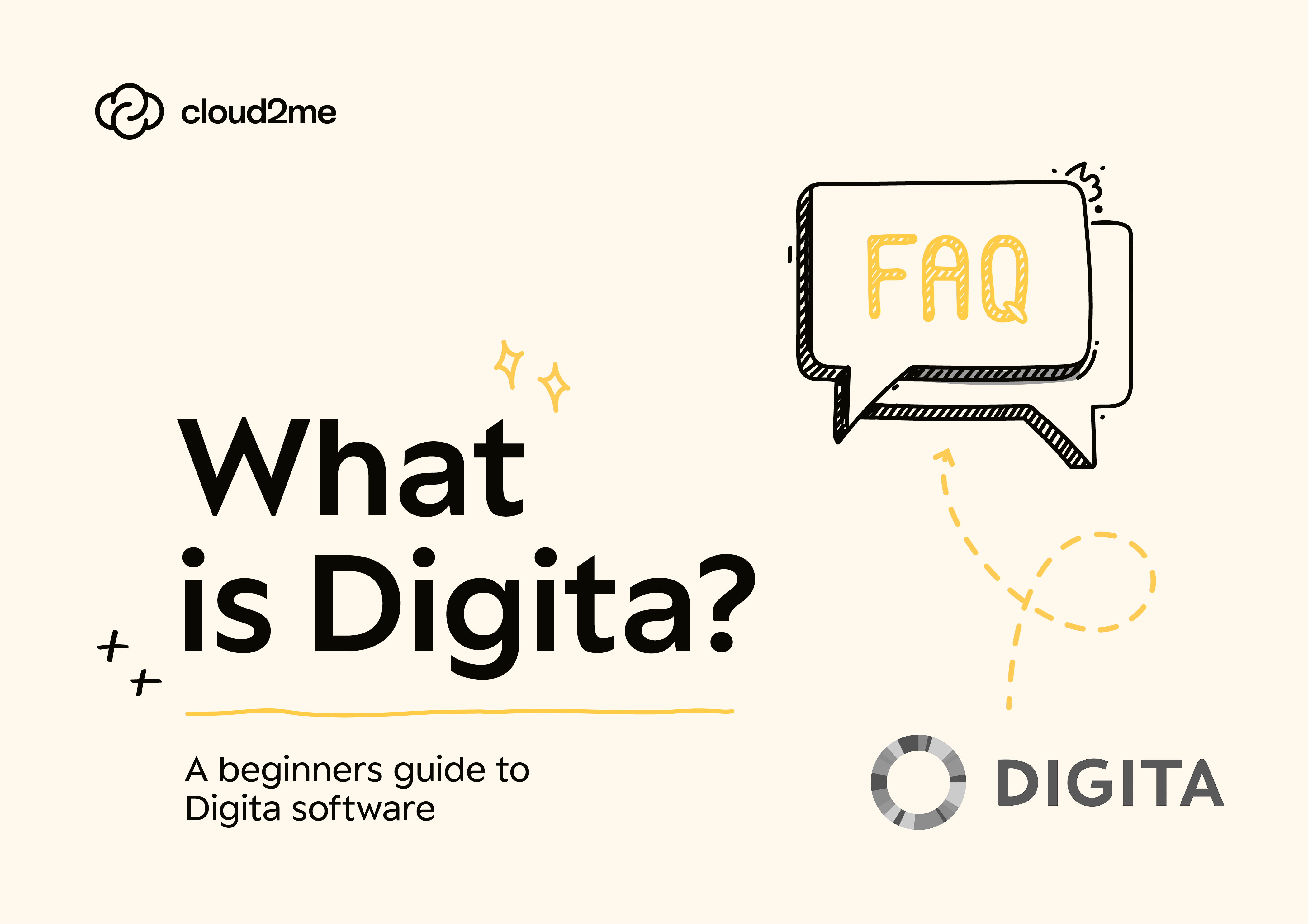Digita is a suite of software solutions designed specifically for medium-sized businesses, accountants and accounting firms. Developed by Thomson Reuters, it offers a range of integrated tools that streamline various accounting tasks and enhance productivity. The software includes modules for tax preparation, accounts production, practice management, and audit management. By automating routine business processes and providing a centralised platform for managing client data, Digita helps accounting professionals improve accuracy, compliance, and overall efficiency.
One of the key features of Digita is its ability to integrate seamlessly with other systems, providing a cohesive workflow that reduces the need for manual data entry and minimises errors. The software is also equipped with advanced reporting and analytics capabilities, allowing accountants to generate detailed financial reports and gain insights into their practice’s performance.
A brief history of Digita
According to its own website via the Wayback Machine, Digita, the accounting software suite, traces its origins back to the West Country, England, when it was formed in 1986, starting humbly in a private house. Over the years, the company organically expanded to offer consumer software publishing, specialist tax software, and corporate training. Notably, Digita pioneered the development of low-cost medium-sized business and personal taxation software that grew to serve a variety of professional and commercial organisations in the UK and overseas. It also partnered with major corporations such as American Express, Atari, Commodore, Panasonic, and the Reed Elsevier Group. In the consumer market, Digita gained recognition for its word processor, Wordworth, which sold over 200,000 copies, and created a budget version for Activision in 13 languages.
Digita entered the commercial taxation market in 1987 with Professional Tax Planner and subsequently launched Taxability Pro® in 1992, featuring a unique graphical interface.
In 2005, Digita International was acquired by Thomson Reuters, a global leader in information and technology solutions. This acquisition marked a significant milestone in Digita’s history, as it allowed the accounting software to benefit from Thomson Reuters’ extensive resources and expertise. Under Thomson Reuters, Digita solutions underwent substantial enhancements, integrating more advanced features and expanding its suite of tools to cover a broader range of accounting tasks.
Why is Digita so popular with accountants and businesses?
Its accounting software is popular among growing businesses due to its comprehensive suite of integrated Digita solutions designed to streamline accounting and financial management tasks. It includes modules for tax preparation, accounts production, practice management, and audit management, which allow accountants to handle a variety of tasks within a single platform. This integration reduces the need for multiple software systems, saving time and minimising errors.
Digita also offers advanced reporting and analytics capabilities, enabling users to generate detailed financial reports and gain valuable insights into their practice’s performance. Its user-friendly interface ensures that even complex accounting tasks can be managed with ease, enhancing overall productivity. Regular updates ensure compliance with the latest tax laws and accounting standards, providing users with confidence and reducing the risk of non-compliance. Additionally, Digita’s strong focus on customer support and training ensures that users can maximise the software’s potential, making it a reliable and effective tool for accounting professionals.
What are Digita’s most popular applications?
Digita offers a variety of accounting software solutions under its ‘Digita Professional Suite’ platform, including:
Digita Personal Tax
Digita Personal Tax software streamlines the entire personal, business, and trust tax compliance process, simplifying tax work for accountants. It enables the effortless completion of core compliance forms for individuals, partnerships, and trusts. It also offers intelligent tools that maintain data consistency and identifies potential savings for clients.
Digita Corporation Tax
Digita Corporation Tax is CT600 software that is designed to save time on tasks for both simple and complex corporate tax clients, allowing practices to easily submit returns, computations, and accounts to HMRC. There are two versions of this software available, Digita Corporation Tax (for standard clients) and Digita Corporation Tax Advanced (for more complex clients).
Digita Accounts Production
Digita Accounts Production software enables accountants to create professional, compliant financial statements/reports and file them directly online to Companies House. With a range of legislative and iXBRL-compliant templates that can be customised for each client, this software caters to every industry and company structure. It also offers two-way synchronisation with Xero, ensuring a real-time flow of data between final accounts and bookkeeping.
Digita Practice Management
Digita Practice Management software enhances the accounting process by providing better control over client data and staff workloads. It offers complete workflow management from a central location, allowing accountants to project manage tasks efficiently. Like Digita Corporation Tax, this software is available in both standard and advanced versions
Digita Company Secretarial
Digita Company Secretarial software ensures client compliance by offering professional company secretarial services. It keeps client records accurate through comparisons with Companies House data, providing greater control and accuracy over online submissions. It also saves time on data entry and form filling with proactive anti-fraud alerts and automatic data imports from other modules.
What are the differences between Digita on an on-premise server versus running it with a hosted desktop provider like Cloud2Me?
Running Digita on an on-premise server versus using it with a hosted desktop provider like Cloud2Me involves several key differences, particularly in the areas of management, accessibility, security, cost, scalability, and reliability.
Management: When using Digita on an on-premise server, your organisation is responsible for the complete management and maintenance of the server infrastructure. This includes handling hardware upgrades, software updates, security patches, and backups. Your internal IT team must ensure that the server operates efficiently and securely at all times. On the other hand, with a hosted desktop provider like Cloud2Me, the server infrastructure is managed by the provider. They take care of all aspects of maintenance, including updates, backups, and security measures. This approach reduces the internal IT burden, allowing your team to concentrate more on core business activities rather than on server management.
Accessibility: In terms of accessibility, Digita on an on-premise server is typically limited to within your organisation’s physical network, unless remote access solutions such as VPNs are implemented. This can restrict flexibility, particularly for remote or distributed teams. In contrast, with Cloud2Me, Digita can be accessed from anywhere with an internet connection, making it much easier for remote teams to collaborate and use the accounting software. This flexibility is particularly advantageous in today’s increasingly remote and hybrid work environments.
Security: Security is another critical difference. For an on-premise server, security is entirely your organisation’s responsibility. This includes setting up firewalls, intrusion detection systems and ensuring physical security for the hardware. While this setup offers complete control, it also demands significant expertise and resources to maintain high levels of security. In comparison, a hosted desktop provider like Cloud2Me typically offers robust security measures, including encryption, regular updates, and continuous monitoring, as part of their service. Data is stored in secure, UK-based managed data centres, reducing the risk of breaches and ensuring compliance with data protection regulations.
Cost: Cost considerations also differ between the two options. Setting up an on-premise server involves high initial costs, including hardware, software licences, and IT personnel. Ongoing costs include maintenance, energy consumption, and potential hardware upgrades. However, once the system is in place, there are no recurring subscription fees, which can be a cost-saving factor over time. In contrast, using a hosted desktop provider involves a subscription-based pricing model, which covers infrastructure, maintenance, and support. While this model entails ongoing monthly or annual fees, it often provides a more predictable cost structure and can reduce the need for large upfront capital expenditure.
Scalability: Scalability is another important factor. Scaling an on-premise server involves purchasing additional hardware and potentially increasing IT resources, which can be time-consuming and expensive. With a hosted desktop provider like Cloud2Me, scaling is generally easier and faster. The provider can quickly allocate more resources to your hosted environment to support your growing business, without the need for significant hardware investments.
Reliability: Finally, in terms of reliability, the on-premise server’s reliability depends on your organisation’s ability to manage the server environment, including redundancy and disaster recovery planning. Downtime can occur if there are issues with the server or network. Hosted desktop providers typically offer higher levels of reliability with built-in redundancy and disaster recovery solutions. They often have multiple data centres and backup systems in place to ensure minimal downtime.
In summary, the decision between using on-premise servers and hosted desktop solutions like Cloud2Me comes down to balancing the trade-offs between control and responsibility versus convenience and flexibility. Hosted desktops offer ease of management, better accessibility, and potentially higher security, while on-premise solutions provide more control but require more resources to manage effectively.
Check out our Hosted Desktop page for more information on how we can help your accountancy practice grow, or contact us here to ask for a quote or demo.

